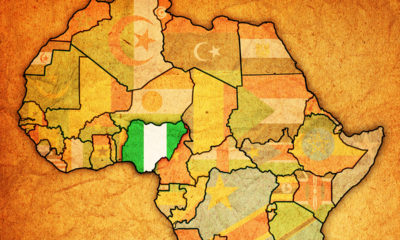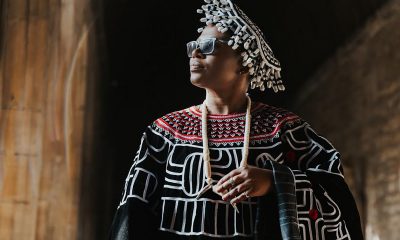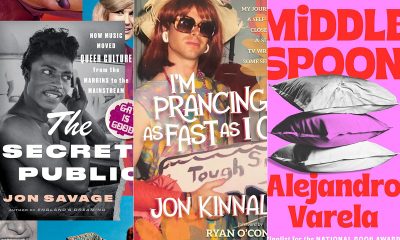Africa
Nigerian fashion industry provides safe haven for country’s LGBTQ community
Homosexuality criminalized; lawmakers want to make cross-dressing illegal
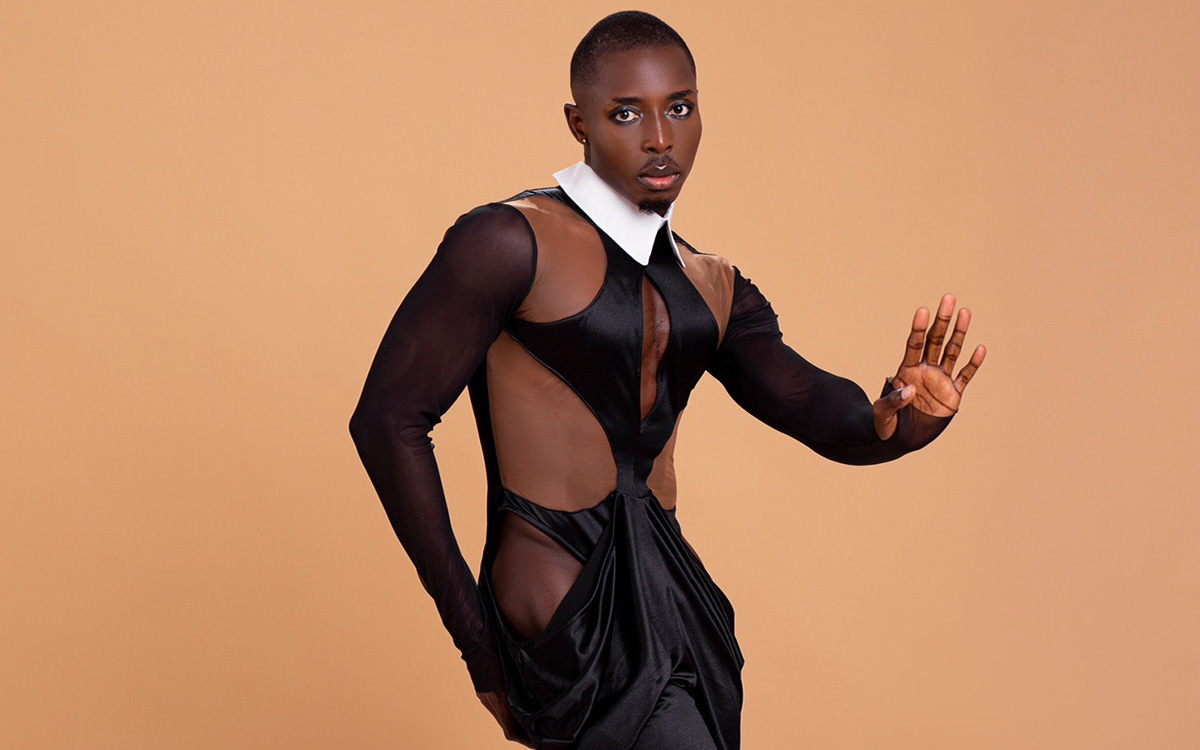
For their SS/24 collection titled Mea Culpa, Emerie Udiaghebi, a young Nigerian androgynous fashion label, ventures into the world of religion, and how conflicted they used to feel growing up as queer and Christian. The collection, built by Udiaghebi, who is a nonbinary designer, is a way for them to add colors to the lackluster they’d felt growing up with a religious background, translating their many experiences into garments they’d have loved to be in while growing up.
“[It] tackles every single feeling, and every single thing it means to be human,” Udiaghebi told the Washington Blade. “There’s love, there’s lust, there’s sadness and they are all open to a range of interpretations. This collection was my interpretation, but with garments.”
Nigeria’s fashion industry has a vibrant tapestry and cultural landscape, and it stands as a bold and expressive thread that weaves together the nation’s rich heritage and contemporary trends. Beyond aesthetics, it serves as a powerful form of empowerment, particularly for the queer community that often faces unique challenges in this diverse and dynamic country.
For members of the country’s queer community, fashion is more than just a collection of fabrics and garments; it’s a means of empowerment.
“Mea Culpa touches a whole lot into my identity, down to how the pieces are constructed,” Udiaghebi said, “If you looked closely at the collection, you’d find that no one garment is one thing. They’re all elements of themselves.”
In a country where LGBTQ individuals often face discrimination, violence and social stigmatization, clothing serves as a powerful tool for self-expression. The ability to choose what to wear can therefore be a liberating act, allowing queer individuals to challenge stereotypes and embrace their authentic selves.
Babatunde Tribe, a nonbinary Nigerian stylist, freelance model and artist, shares these sentiments.
“You see, every outfit I put together has a purpose, a message and a little rebellion against the ordinary,” they told the Washington Blade, “It takes a keen eye to notice that I’m not just getting dressed; I’m crafting a visual narrative.”
For people like Tribe, fashion has become this gateway for expression and community building. It’s become a way to celebrate their unique identity, and assert their presence in a world that often forces conformity.
Speaking of non-conformity, fashion week events in Nigeria are being swarmed with these incredible expressions. They have also presented themselves as a safe space for the queer community to dress expressively. These events, characterized by their eclectic mix of styles and designers, offer an environment where attendees can freely express their identities through clothing. It’s a place where diversity is celebrated, and queer individuals can showcase their unique fashion sense without fear of judgement or discrimination.
Victor, a gay man who attended Lagos Fashion Week highlights in an interview with Dazed Media the significance of these events.
“My most considerable style inspiration would be societal issues like gender norms and discussions around masculinity,” he said. “I try to use my style to push these kinds of conversations.”
While fashion serves as a source of empowerment for the queer community, the Same-Sex Marriage Prohibition Act remains in place.
This law, which former President Goodluck Jonathan enacted in 2014, same-sex marriage and any form of public displays of affection between individuals of the same sex. The SSMPA not only perpetuates discrimination; but also extends its reach into clothing choices, placing queer people at risk for expressing themselves through what they wear.
The SSMPA has therefore had a chilling effect on personal expressions of style.
Dressing in a way that challenges traditional gender norms can lead to suspicion and harassment. Police officers, often motivated by prejudice or lack of understanding, have targeted individuals based on their attire, further exacerbating the challenges faced by the queer community.
Just recently, Nigerian authorities arrested suspected gay people for attending an alleged same-sex wedding and birthday party in Delta state and Gombe state respectively. MPs last year pushed for a bill that would criminalize cross-dressing in Nigeria — an update to the already existing SSMPA.
Despite the oppressive legal environment, many members of Nigeria’s queer community are not deterred. Fashion has become a tool for activism and resistance. Designers, artists and activists are using clothing to raise awareness and advocate for LGBTQ rights. They recognize the power of fashion as a platform to challenge the status quo and fight for greater acceptance.
Queer City Media and other organizations have organized fashion events that celebrate queer identities and challenge stereotypes. These events provide a platform for designers and models to express their creativity while advocating for LGBTQ rights. It’s a way for the queer community to make a powerful statement through fashion, showcasing that they refuse to be silenced or marginalized. As Nigeria grapples with complex social and political issues, the role of fashion in empowering the queer community is likely to evolve.
The future of fashion empowerment in Nigeria hinges on the collective efforts of the queer community, fashion industry and allies. As acceptance and understanding grow, so too will the opportunities for queer individuals to express themselves freely through clothing. Fashion weeks, already crucial safe spaces, may continue to expand, inviting a broader spectrum of voices and styles. As the Nigerian fashion scene continues to flourish and the conversation around LGBTQ rights gains momentum, the transformative power of fashion in this diverse nation remains a source of strength and inspiration for many. Nigeria’s fashion industry stands as a beacon of empowerment for the queer community. It offers a safe haven where LGBTQ individuals can boldly express themselves, challenge stereotypes and celebrate their unique identities.
Egypt
Iran, Egypt object to playing in Seattle World Cup ‘Pride Match’
Game to take place on June 26

Iran and Egypt have objected to playing in a “Pride Match” that will take place in Seattle during the 2026 World Cup.
The Egyptian Football Association on Tuesday said it told FIFA Secretary General Mattias Grafström in a letter that “it categorically rejects holding any activities related to supporting (homosexuality) during the match between the Egyptian national team and Iran, scheduled to be held in Seattle, USA, on June 26, 2026, in the third round of the group stage of the 2026 World Cup.” Football Federation Islamic Republic of Iran President Mehdi Taj told ISNA, a semi-official Iranian news agency that both his country and Egypt “protested this issue.”
The 2026 World Cup will take place in the U.S., Canada, and Mexico. The draw took place at the Kennedy Center on Dec. 5.
Iran is among the handful of countries in which consensual same-sex sexual relations remain punishable by death.
The State Department’s 2023 human rights report notes that while Egyptian law “did not explicitly criminalize consensual same-sex sexual activity, authorities regularly arrested and prosecuted LGBTQI+ persons on charges including ‘debauchery,’ prostitution, and ‘violating family values.’” Egyptian authorities “also reportedly prosecuted LGBTQI+ individuals for ‘misuse of social media.’”
“This resulted in de facto criminalization of same-sex conduct and identity,” notes the report.
The 2024 human rights report the State Department released earlier this year did not include LGBTQ-specific references.
Soccer has ‘unique power to unite people across borders, cultures, and beliefs’
The June 26 match between Iran and Egypt coincides with Seattle Pride. The Washington Post reported the Seattle FIFA World Cup 2026 Local Organizing Committee decided to hold the “Pride Match” before last week’s draw.
“As the Local Organizing Committee, SeattleFWC26’s role is to prepare our city to host the matches and manage the city experience outside of Seattle Stadium,” said SeattleFWC26 Vice President of Communications Hana Tadesse in a statement the committee sent to the Washington Blade on Wednesday. “SeattleFWC26 is moving forward as planned with our community programming outside the stadium during Pride weekend and throughout the tournament, partnering with LGBTQ+ leaders, artists, and business owners to elevate existing Pride celebrations across Washington.”
“Football has a unique power to unite people across borders, cultures, and beliefs,” added Tadeese. “The Pacific Northwest is home to one of the nation’s largest Iranian-American communities, a thriving Egyptian diaspora, and rich communities representing all nations we’re hosting in Seattle. We’re committed to ensuring all residents and visitors experience the warmth, respect, and dignity that defines our region.”
The 2034 World Cup will take place in Saudi Arabia.
Consensual same-sex sexual relations remain punishable by death in the country. The 2022 World Cup took place in neighboring Qatar, despite concerns over the country’s anti-LGBTQ rights record.
Eswatini
PEPFAR delivers first doses of groundbreaking HIV prevention drug to two African countries
Lenacapavir now available in Eswatini and Zambia.
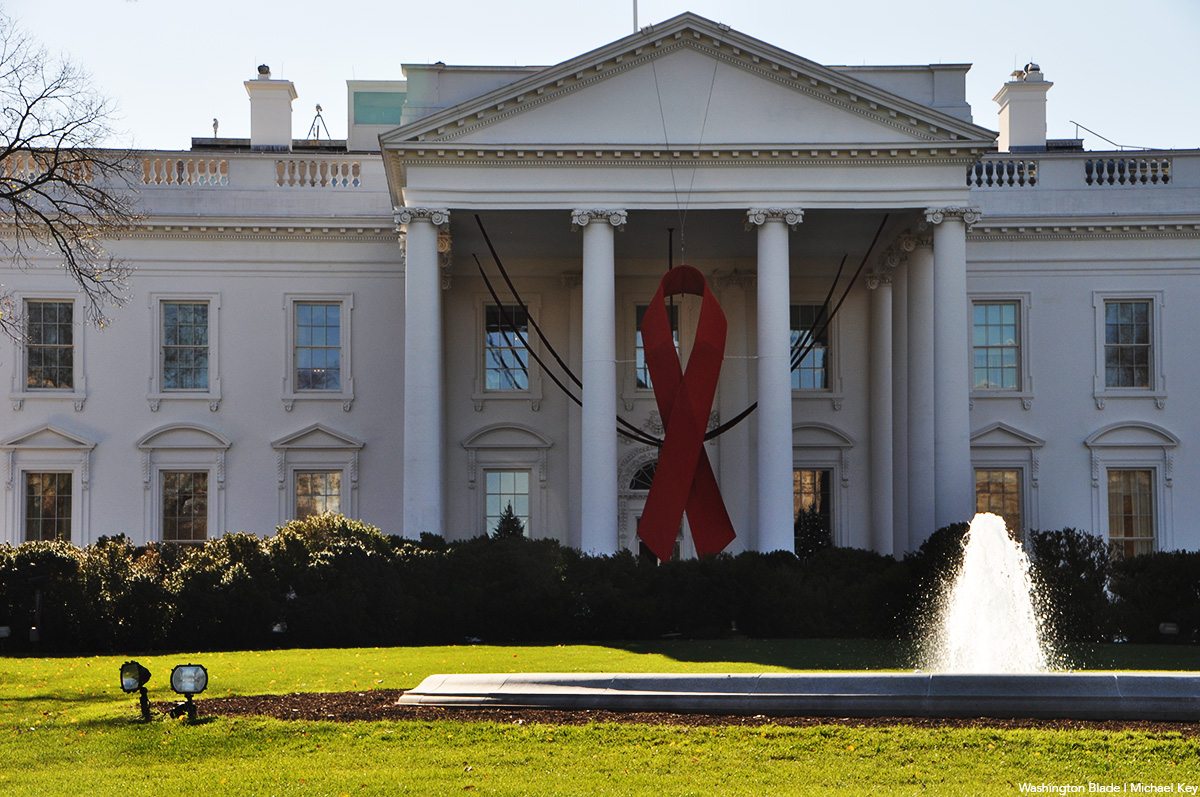
The State Department on Tuesday announced PEPFAR has delivered the first doses of a groundbreaking HIV prevention drug to two African countries.
The lenacapavir doses arrived in Eswatini and Zambia.
The State Department in September unveiled an initiative with Gilead Sciences to bring lenacapavir “to market in high-burden HIV countries.”
Lenacapavir users inject the drug twice a year.
The State Department in its September announcement noted everyone who participated in Gilead’s clinical trials remained HIV negative. It also said lenacapavir “has the potential to be particularly helpful for pregnant and breastfeeding mothers, as it safely protects them during and after pregnancy to prevent mother-to-child transmission.”
“In our new America First Global Health Strategy, the Department of State is establishing a first-of-its-kind innovation fund to support American-led research, market-shaping, and other dynamic advancements in global health,” said PEPFAR on Tuesday in a press release.
“The arrivals of the first doses of lenacapavir in Eswatini and Zambia mark an important milestone in HIV prevention and reflect our commitment to supporting communities with the greatest need,” added Gilead CEO Daniel O’Day. “For the first time, a new HIV medicine is reaching communities in sub-Saharan Africa in the same year as its U.S. approval.”
The September announcement came against the backdrop of widespread criticism over the Trump-Vance administration’s reported plans to not fully fund PEPFAR and to cut domestic HIV/AIDS funding. The Washington Blade has previously reported PEPFAR-funded programs in Kenya and other African countries have been forced to curtail services or even close because of U.S. funding cuts.
Botswana
The first courageous annual Palapye Pride in Botswana
Celebration was a beginning rooted in courage, community, and love.
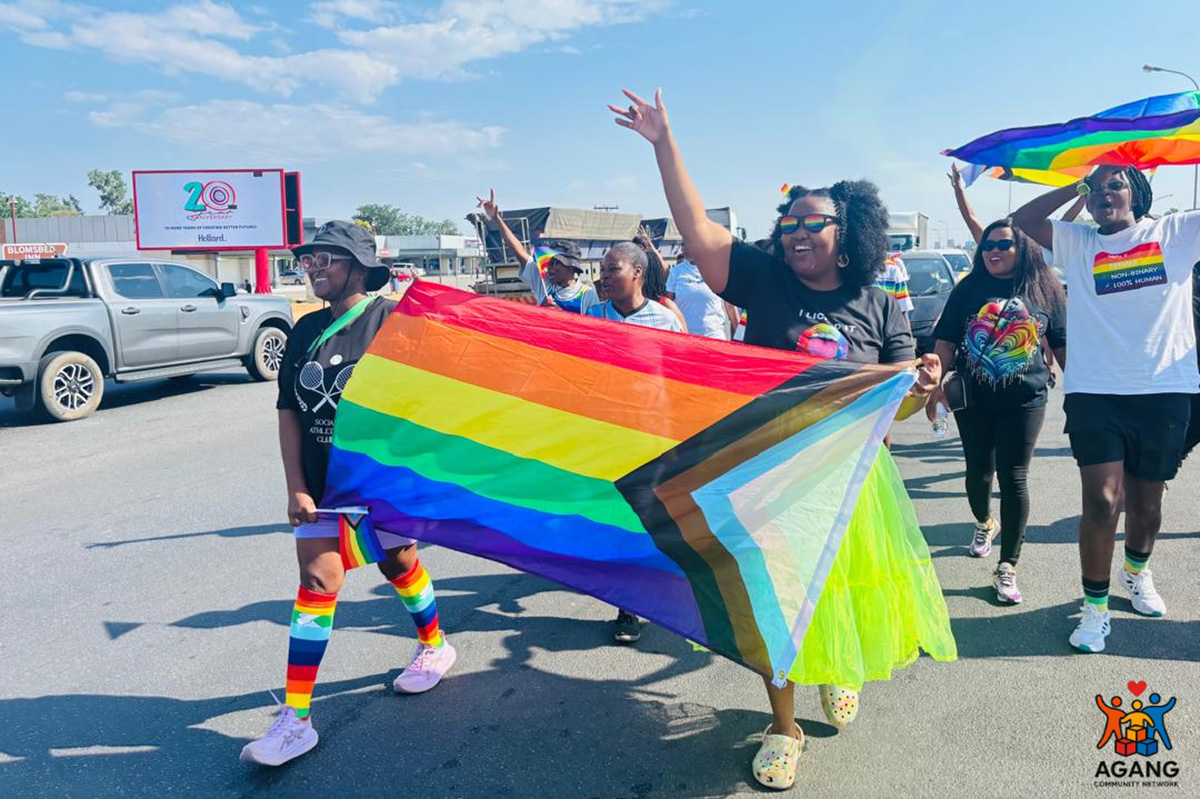
“When the sun rose on 1 Nov., 2025, Pride morning in Palapye, the open space where the march was scheduled to begin was empty. I stood there trying to look calm, but inside, my chest felt tight. I was worried that no one would come. It was the first-ever Pride in Palapye, a semi-urban village where cultural norms, religious beliefs, and tradition are deeply woven into everyday life.
I kept asking myself if we were being naive. Maybe people weren’t ready. Perhaps fear was going to win. For the first 30 minutes, it was me, a couple of religious leaders and a handful of parents. That was it. The silence was loud, and every second felt like it stretched into hours. I expected to see the queer community showing up in numbers, draped in color and excitement. Instead, only the wind was moving.
But slowly, gently, just like courage often arrives, people started to show up with a rainbow flag appearing from behind a tree and a hesitant wave from someone standing at a distance.
That’s when I understood that people weren’t late, just that they were afraid. And their fear made sense. Showing up openly in a small community like Palapye is a radical act. It disrupts silence. It challenges norms. It forces visibility. Visibility is powerful, but it is never easy. We marched with courage, pulling from the deepest parts of ourselves. We marched with laughter that cracked through the tension. We marched not because it was easy, but because it was necessary,” narrates activist Seipone Boitshwarelo from AGANG Community Network, which focuses on families and friends of LGBTIQ+ people in Botswana. She is also a BW PRIDE Awards nominee for the Healing and Justice Award, a category which acknowledges contributions to wellness, mental health, and healing for the LGBTIQ+ community across Botswana.
Queer Pride is Botswana Pride!
Pride is both a celebration and a political statement. It came about as a response to systemic oppression, particularly the criminalization and marginalization of LGBTIQ+ people globally, including in Botswana at some point. It is part of the recognition, equality, and assertion of human rights. It also reminds us that liberation and equality are not automatically universal, and continued activism is necessary. A reminder of the famous saying by Fannie Lou Hamer, “Nobody is free until everybody’s free.”
The 2023 Constitutional Review process made one thing evident, which is that Botswana still struggles to acknowledge the existence of LGBTIQ+ people as full citizens. Instead of creating a democratic space for every voice, the process sidelined and erased an entire community. In Bradley Fortuin’s analysis of the Constitutional review and its final report, he highlighted how this erasure directly contradicts past court decisions that explicitly affirmed the right of LGBTIQ+ people to participate fully and openly in civic life. When the state chooses to ignore court orders and ignore communities, it becomes clear that visibility must be reclaimed through alternative means. This is why AGANG Community Network embarked on Palapye Pride. It is a radical insistence on belonging, rooted in community and strengthened through intersectionality with families, friends, and allies who refuse to let our stories be erased.
Motho ke motho ka batho!
One of the most strategic decisions made by the AGANG Community Network was to engage parents, religious leaders, and local community members, recognizing their value in inclusion and support. Thus, their presence in the march was not symbolic, but it was intentional.
Funding for human rights and LGBTIQ+ advocacy has been negatively impacted since January 2025, and current funding is highly competitive, uneven and scarce, especially for grassroots organizations in Botswana. The Palapye Pride event was not funded, but community members still showed up and donated water, a sound system, and someone even printed materials. This event happened because individuals believed in its value and essence. It was a reminder that activism is not always measured in budgets but in willingness and that “motho ke motho ka batho!” (“A person is a person because of other people!”).
Freedom of association for all
In March 2016, in the the Attorney General of Botswana v. Rammoge and 19 Others case, also known as the LEGABIBO registration case, the Botswana Court of Appeal stated that “members of the gay, lesbian, and transgender community, although no doubt a small minority, and unacceptable to some on religious or other grounds, form part of the rich diversity of any nation and are fully entitled in Botswana, as in any other progressive state, to the constitutional protection of their dignity.” Freedom of association, assembly, and expression is a foundation for civic and democratic participation, as it allows all citizens to organize around shared interests, raise their collective voice, and influence societal and cultural change, as well as legislative reform.
The Botswana courts, shortly after in 2021, declared that criminalizing same-sex sexual relations is unconstitutional because they violated rights to privacy, liberty, dignity, equality, and nondiscrimination. Despite these legal wins, social stigma, cultural, and religious opposition continue to affect the daily lived experience of LGBTIQ+ people in Botswana.
The continuation of a declaration
AGANG Community Network is committed to continuing this work and creating safe and supportive spaces for LGBTIQ+ people, their families, friend, and allies. Pride is not just a day of fun. It is a movement, a declaration of queer existence and recognition of allyship. It is healing and reconciliation while amplifying queer joy.
Seipone Boitshwarelo is a feminist, activist, social justice healer, and founder of AGANG Community Network. Bradley Fortuin is a social justice activist and a consultant at the Southern Africa Litigation Center.

